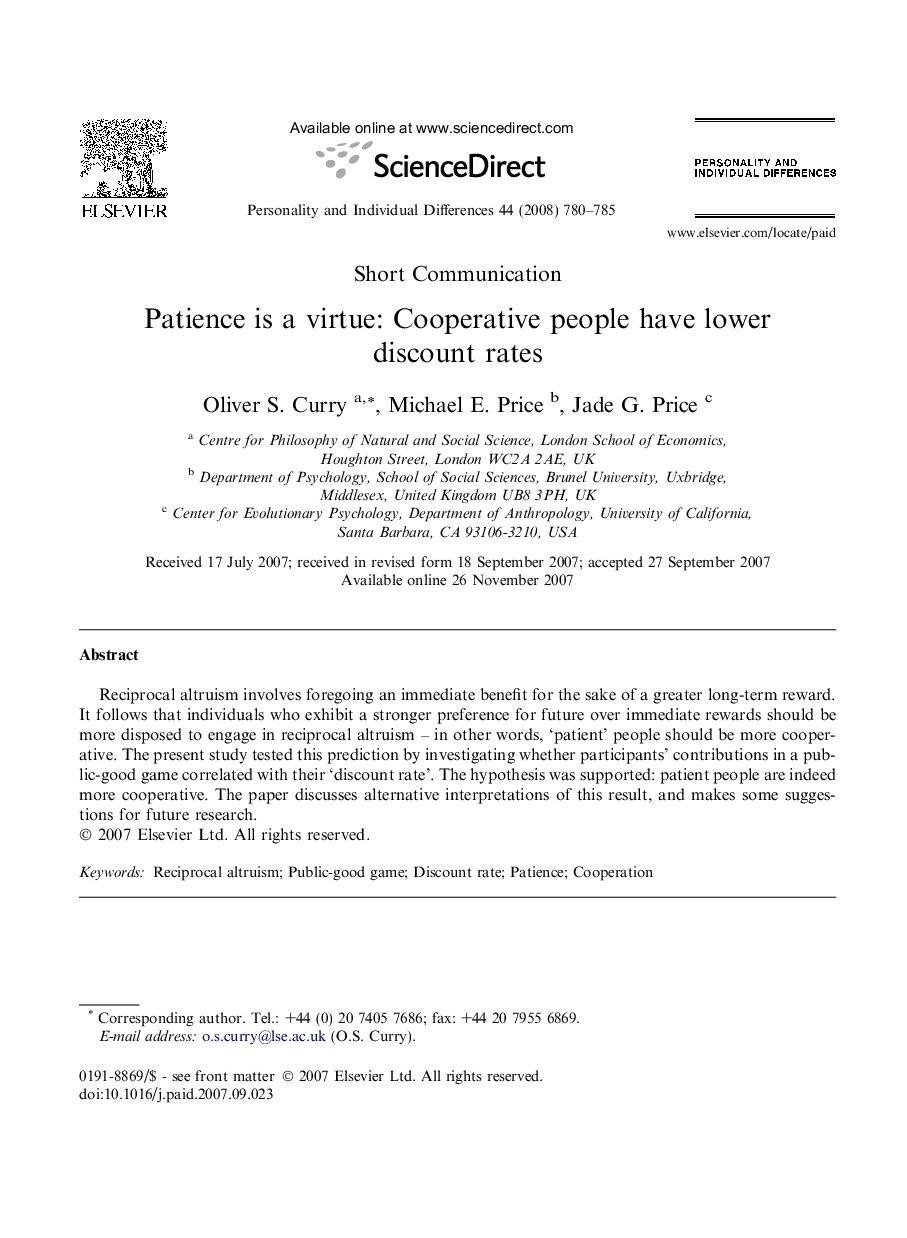| Article ID | Journal | Published Year | Pages | File Type |
|---|---|---|---|---|
| 892817 | Personality and Individual Differences | 2008 | 6 Pages |
Abstract
Reciprocal altruism involves foregoing an immediate benefit for the sake of a greater long-term reward. It follows that individuals who exhibit a stronger preference for future over immediate rewards should be more disposed to engage in reciprocal altruism – in other words, ‘patient’ people should be more cooperative. The present study tested this prediction by investigating whether participants’ contributions in a public-good game correlated with their ‘discount rate’. The hypothesis was supported: patient people are indeed more cooperative. The paper discusses alternative interpretations of this result, and makes some suggestions for future research.
Related Topics
Life Sciences
Neuroscience
Behavioral Neuroscience
Authors
Oliver S. Curry, Michael E. Price, Jade G. Price,
